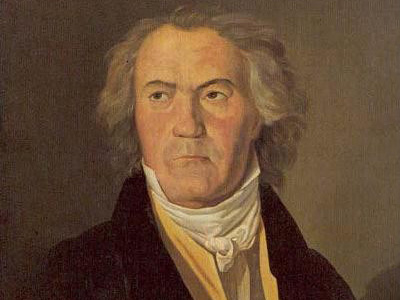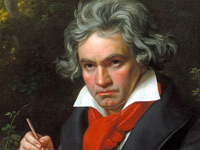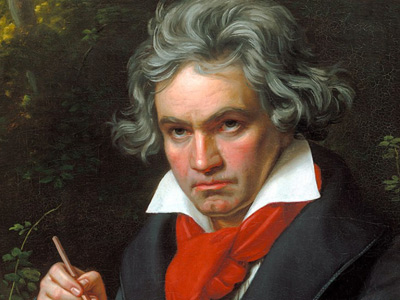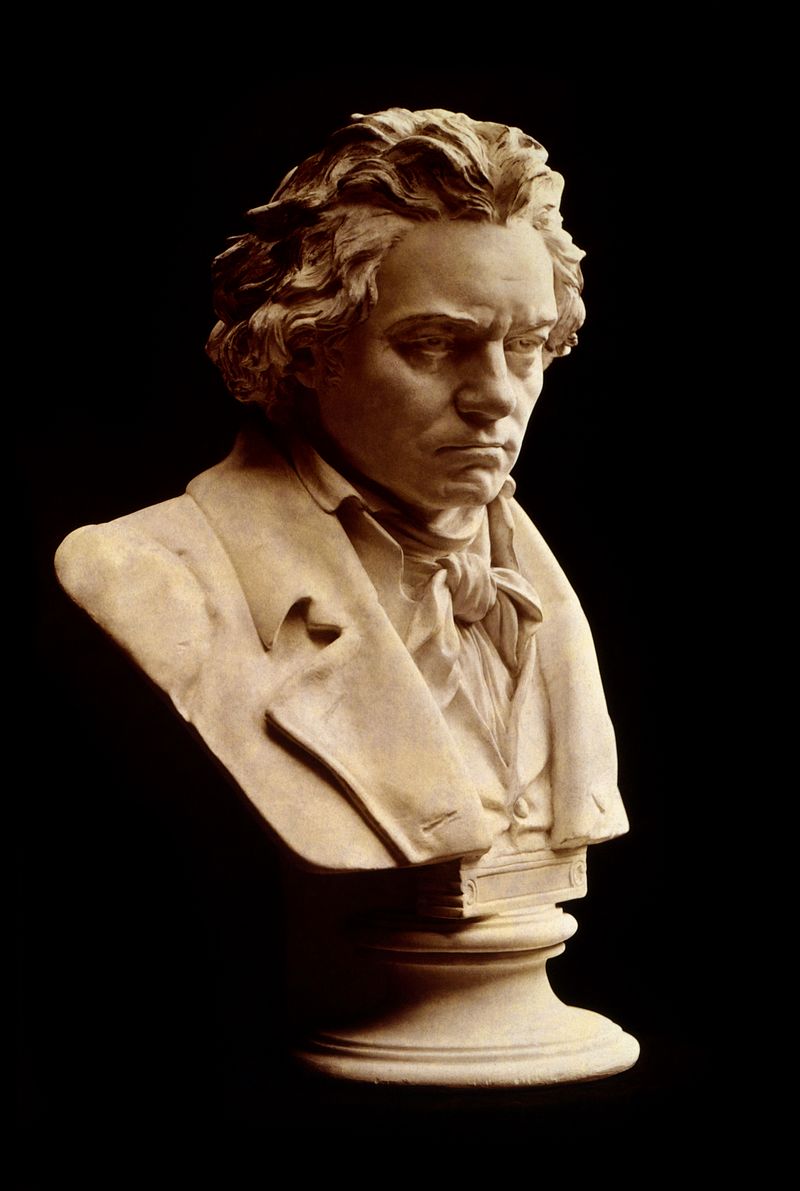Ludwig van Beethoven (1770-1827)

Patronage
While Beethoven earned income from publication of his works and from public performances, he also depended on the generosity of patrons for income, for whom he gave private performances and copies of works they commissioned for an exclusive period prior to their publication. Some of his early patrons, including Prince Lobkowitz and Prince Lichnowsky, gave him annual stipends in addition to commissioning works and purchasing published works.
Perhaps Beethoven's most important aristocratic patron was Archduke Rudolph, the youngest son of Emperor Leopold II, who in 1803 or 1804 began to study piano and composition with Beethoven. The cleric (Cardinal-Priest) and the composer became friends, and their meetings continued until 1824. Beethoven dedicated 14 compositions to Rudolph, including the Archduke Trio (1811) and Missa solemnis (1823). Rudolph, in turn, dedicated one of his own compositions to Beethoven. The letters Beethoven wrote to Rudolph are today kept at the Gesellschaft der Musikfreunde in Vienna. Another patron was Count (later Prince) Andreas Razumovsky, for whom the String Quartets Nos. 7–9, Op. 59, Rasumovsky were named.
In the autumn of 1808, after having been rejected for a position at the royal theatre, Beethoven received an offer from Napoleon's brother Jérôme Bonaparte, then king of Westphalia, for a well-paid position as Kapellmeister at the court in Cassel. To persuade him to stay in Vienna, the Archduke Rudolph, Prince Kinsky and Prince Lobkowitz, after receiving representations from the composer's friends, pledged to pay Beethoven a pension of 4000 florins a year. Only Archduke Rudolph paid his share of the pension on the agreed date. Kinsky, immediately called to military duty, did not contribute and soon died after falling from his horse. Lobkowitz stopped paying in September 1811. No successors came forward to continue the patronage, and Beethoven relied mostly on selling composition rights and a small pension after 1815. The effects of these financial arrangements were undermined to some extent by war with France First French Empire, officially the French Republic, then the French Empire after 1809, also known as Napoleonic France, was the empire ruled by Napoleon Bonaparte, who established French hegemony over much of continental Europe at the beginning of the 19th century. It lasted from 18 May 1804 to 11 April 1814 and again briefly from 20 March 1815 to 7 July 1815. A series of wars, known collectively as the Napoleonic Wars, extended French influence to much of Western Europe and into Poland., which caused significant inflation when the government printed money to fund its war efforts.
First French Empire, officially the French Republic, then the French Empire after 1809, also known as Napoleonic France, was the empire ruled by Napoleon Bonaparte, who established French hegemony over much of continental Europe at the beginning of the 19th century. It lasted from 18 May 1804 to 11 April 1814 and again briefly from 20 March 1815 to 7 July 1815. A series of wars, known collectively as the Napoleonic Wars, extended French influence to much of Western Europe and into Poland., which caused significant inflation when the government printed money to fund its war efforts.
HISTORY

RESOURCES
This article uses material from the Wikipedia article "Ludwig van Beethoven (1770-1827)", which is released under the Creative Commons Attribution-Share-Alike License 3.0.
© Stories Preschool. All Rights Reserved.










